Nadir J.
See all reviews
This course teaches you to unlock the full potential of AI by enabling MCPs to use external tools. You'll gain fundamental knowledge and practical skills in designing Model Context Protocols (MCPs) – the blueprints for AI tool interaction. By bridging the gap between AI theory and real-world application, this course will empower you to build smarter, more capable AI solutions.



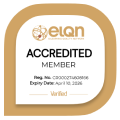

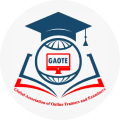
Skill level:
Duration:
CPE credits:
Accredited

Bringing real-world expertise from leading global companies
Master's degree, Finance, Marketing, and Sales
Description
This course is your gateway to building the next generation of intelligent AI systems through the use of Model Context Protocols (MCPs)—the frameworks that allow AI agents to connect with and use external tools effectively.
You’ll start by exploring the fundamentals of interactive AI—what AI agents are, why they need tools, and how tool orchestration transforms them from passive responders into active problem-solvers. Through real-world examples and hands-on exercises, you’ll see how MCPs act as the blueprints for tool interaction, giving AI the structure it needs to perform complex tasks with accuracy and reliability.
From there, you’ll dive into the inner workings of MCPs: what they are, the problems they solve, and how they differ from simple prompting. You’ll study real-world cases like Claude Desktop to see MCPs in action, then move into practical application by experimenting with MCP flows, guided outputs, and simulations.
As the course progresses, you’ll take your knowledge from theory to practice by designing and building your first MCP outline. You’ll learn the step-by-step process of defining clear goals, identifying key contextual inputs, and structuring AI–tool–user interactions. With guided video walkthroughs, exercises, and practice exams, you’ll gain the skills and confidence to move from beginner to practitioner.
By the end of this course, you’ll not only understand the core principles of MCPs, but also know how to apply them to create smarter, more capable AI solutions. You’ll walk away with:
Whether you’re a developer, analyst, product manager, or AI enthusiast, this course will equip you with the knowledge and hands-on practice needed to start shaping the future of AI—one MCP at a time.
Curriculum
This module introduces the fundamental concepts of AI agents and the crucial role external tools play in their capabilities. You'll learn what defines an AI agent, why standalone AI models are limited, and how tool calling and orchestration enable AI to perform real-world actions. Students will gain the skill to identify AI agents, explain the necessity of tools, and articulate the symbiotic relationship between agents, MCPs, and tools.
This module introduces the fundamental concepts of AI agents and the crucial role external tools play in their capabilities. You'll learn what defines an AI agent, why standalone AI models are limited, and how tool calling and orchestration enable AI to perform real-world actions. Students will gain the skill to identify AI agents, explain the necessity of tools, and articulate the symbiotic relationship between agents, MCPs, and tools.
Dive into the core of Model Context Protocols (MCPs), the structured language that guides AI-tool interaction. This module defines MCPs, explains the problems they solve (like ambiguity), and breaks down their essential components, including different types of capabilities (Tools, Resources, Prompts, Sampling). Students will learn to define MCPs, identify their core elements, understand their problem-solving power, and distinguish them from simpler prompting methods.
Dive into the core of Model Context Protocols (MCPs), the structured language that guides AI-tool interaction. This module defines MCPs, explains the problems they solve (like ambiguity), and breaks down their essential components, including different types of capabilities (Tools, Resources, Prompts, Sampling). Students will learn to define MCPs, identify their core elements, understand their problem-solving power, and distinguish them from simpler prompting methods.
This module focuses on the practical application of simple MCPs. You'll learn to interpret an MCP's structure, identify necessary inputs, and understand how it guides an AI to formulate tool requests and interpret responses. Through hands-on simulation in Claude Desktop, students will practice applying MCPs to real-world scenarios, gaining skills in interpreting MCPs, structuring AI interactions, and simulating tool-driven responses.
This module focuses on the practical application of simple MCPs. You'll learn to interpret an MCP's structure, identify necessary inputs, and understand how it guides an AI to formulate tool requests and interpret responses. Through hands-on simulation in Claude Desktop, students will practice applying MCPs to real-world scenarios, gaining skills in interpreting MCPs, structuring AI interactions, and simulating tool-driven responses.
Become an MCP architect in this module! You'll learn the systematic principles for designing clear and effective MCPs from scratch, focusing on defining atomic goals and identifying all necessary contextual information. The module also introduces how AI-powered coding assistants like Cursor can significantly aid in MCP development. Students will acquire skills in formulating precise goals, designing MCP parameters, structuring interaction flows, and leveraging AI tools for MCP creation.
Become an MCP architect in this module! You'll learn the systematic principles for designing clear and effective MCPs from scratch, focusing on defining atomic goals and identifying all necessary contextual information. The module also introduces how AI-powered coding assistants like Cursor can significantly aid in MCP development. Students will acquire skills in formulating precise goals, designing MCP parameters, structuring interaction flows, and leveraging AI tools for MCP creation.
This concluding module consolidates your MCP knowledge, placing it within the broader landscape of Agentic AI. You'll recap the benefits and limitations of simple MCPs and explore where they fit into more complex AI systems like function calling and toolkits. Students will gain the ability to appreciate MCPs' role in advanced AI, summarize their pros and cons, recall best practices, and identify resources for continuous learning in AI tooling.
This concluding module consolidates your MCP knowledge, placing it within the broader landscape of Agentic AI. You'll recap the benefits and limitations of simple MCPs and explore where they fit into more complex AI systems like function calling and toolkits. Students will gain the ability to appreciate MCPs' role in advanced AI, summarize their pros and cons, recall best practices, and identify resources for continuous learning in AI tooling.
Free lessons

1.1 Course Kick-Off: Your Journey into MCPs
6 min
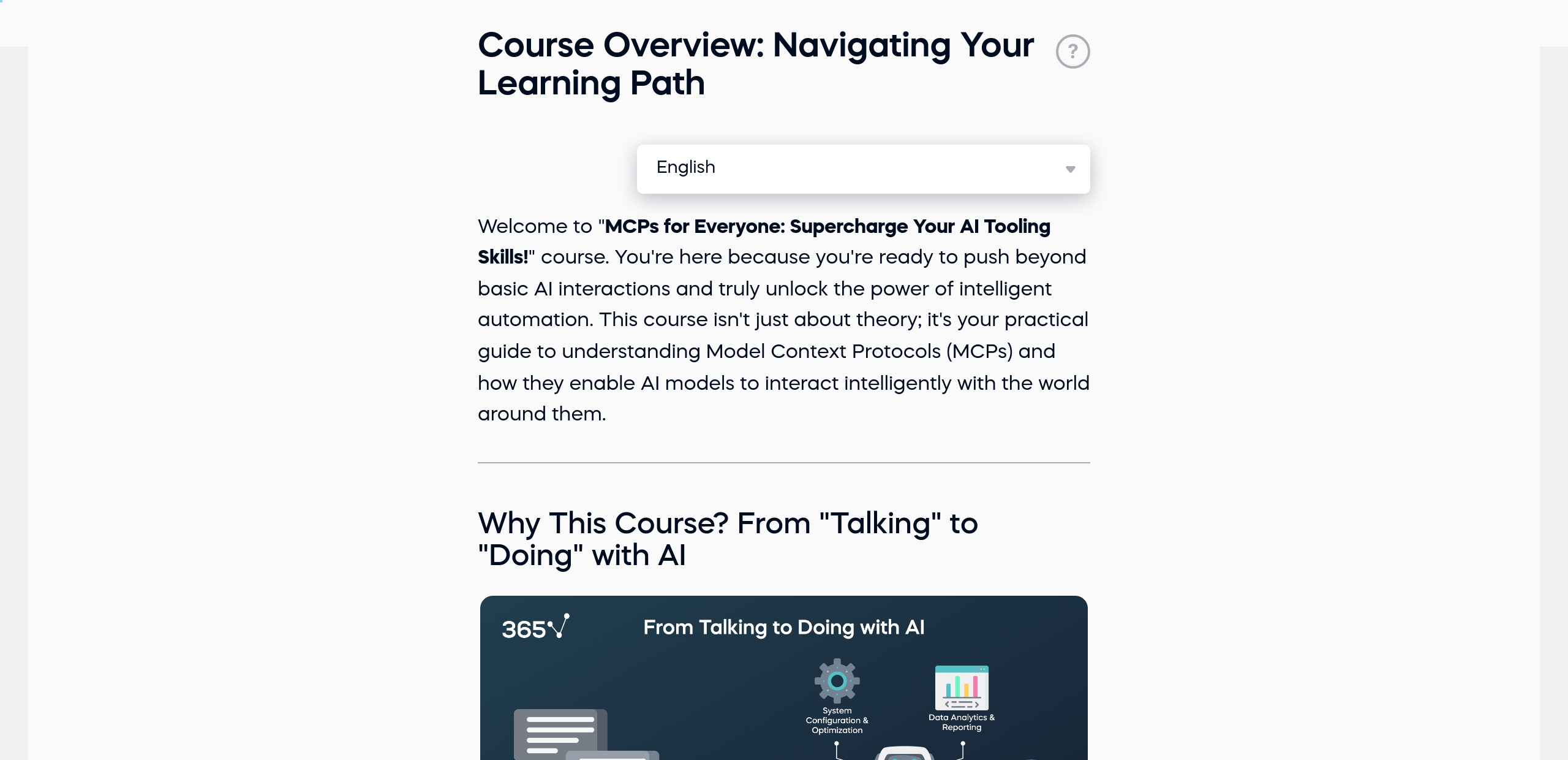
1.2 Course Overview: Navigating Your Learning Path
5 min

2.1 Intro: Unlocking AI's Potential
1 min
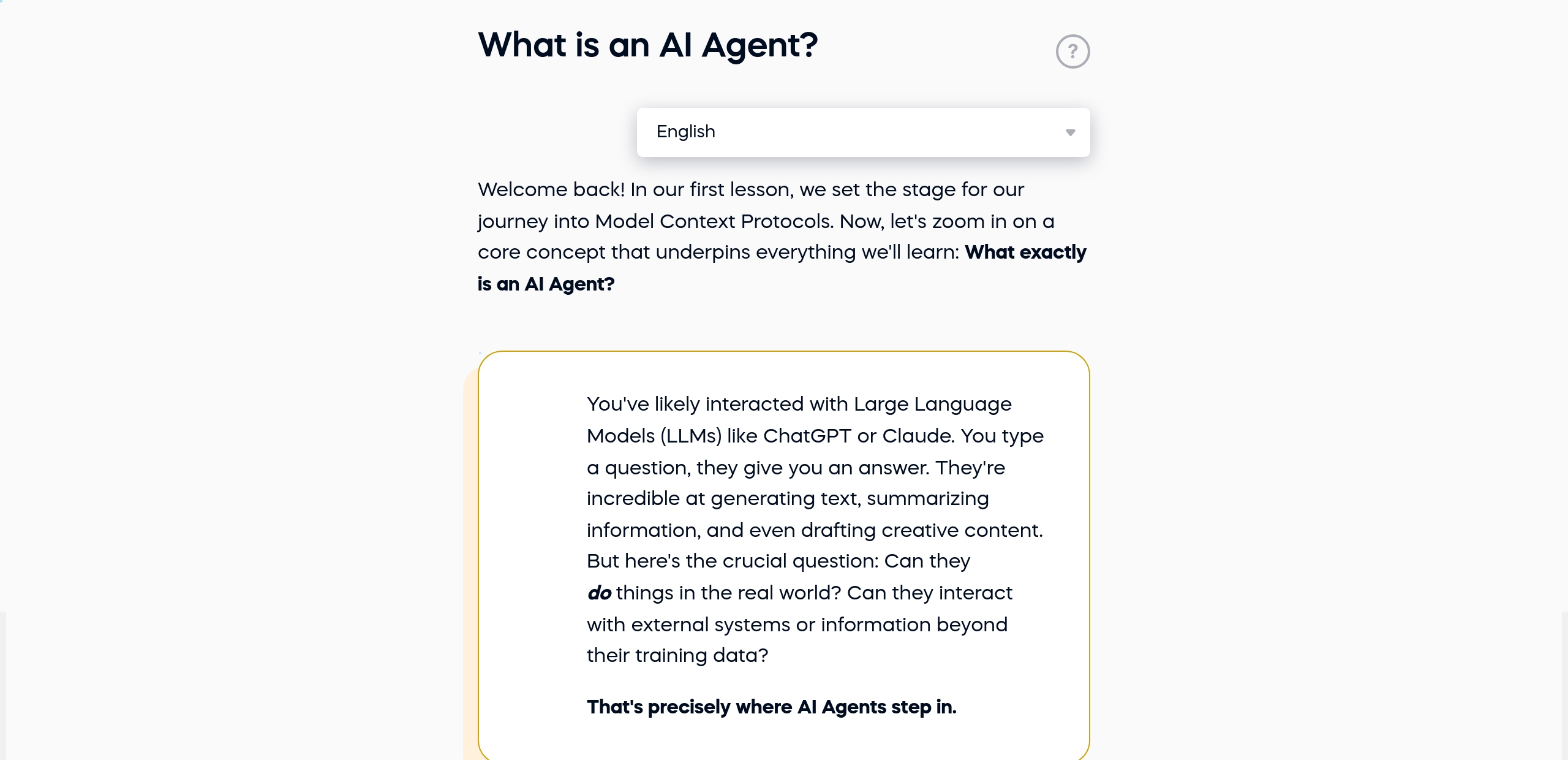
2.2 What is an AI Agent?
7 min
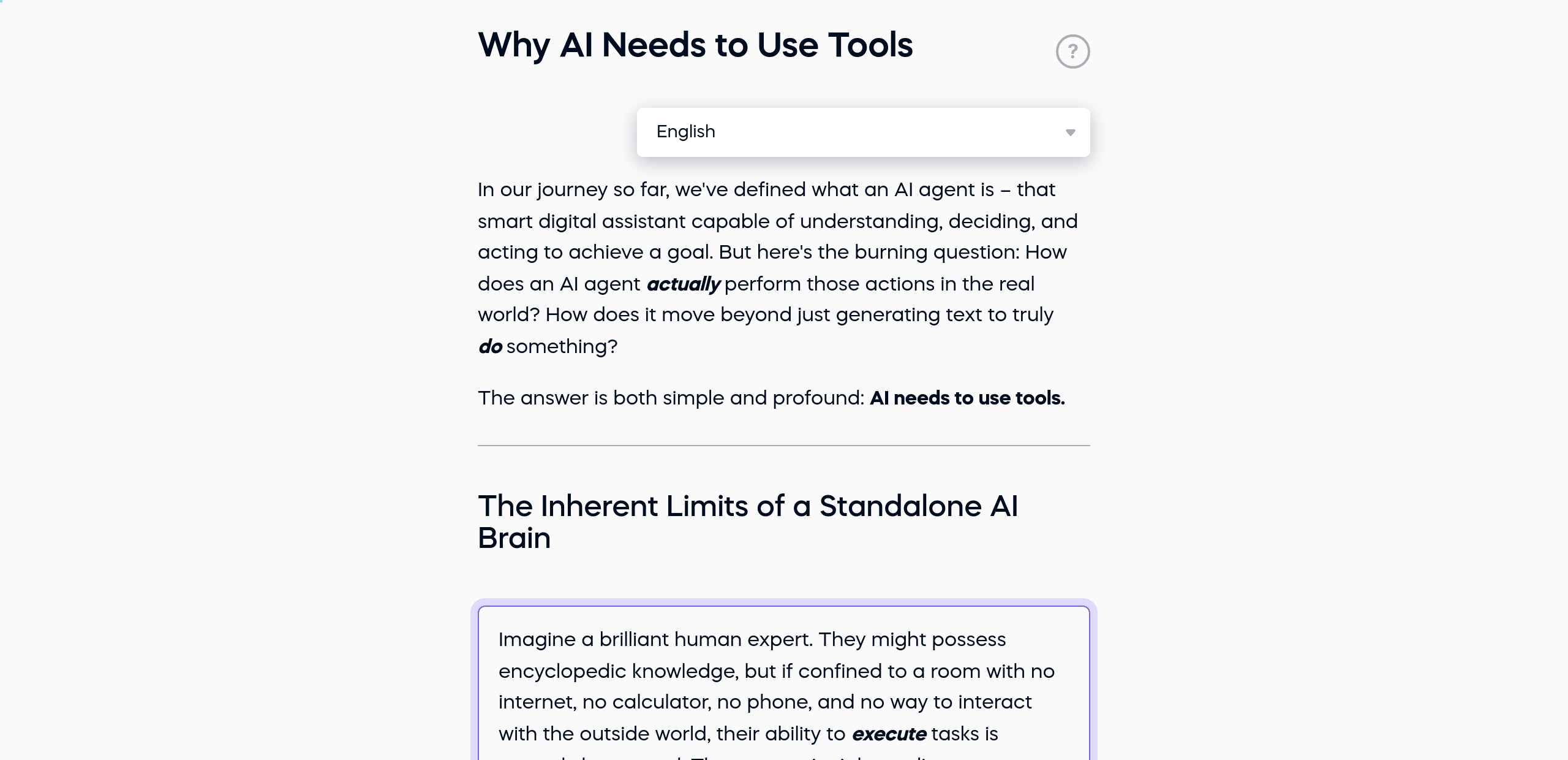
2.3 Why AI Needs to Use Tools
5 min

2.4 AI Agents in Action with "Computer Commander"
6 min
94%
of AI and data science graduates
successfully change
#1 most reviewed
9 in 10
of our graduates landed a new AI & data job
ACCREDITED certificates
Craft a resume and LinkedIn profile you’re proud of—featuring certificates recognized by leading global
institutions.
Earn CPE-accredited credentials that showcase your dedication, growth, and essential skills—the qualities
employers value most.





Certificates are included with the Self-study learning plan.
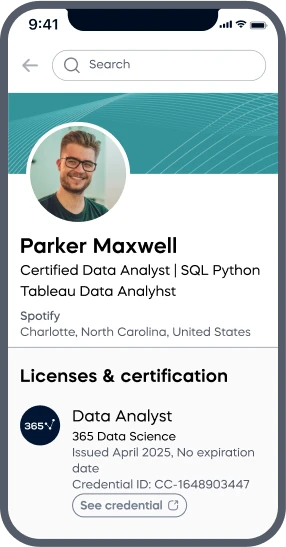
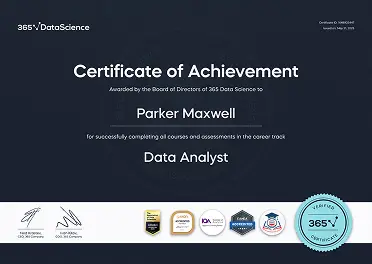
How it WORKS